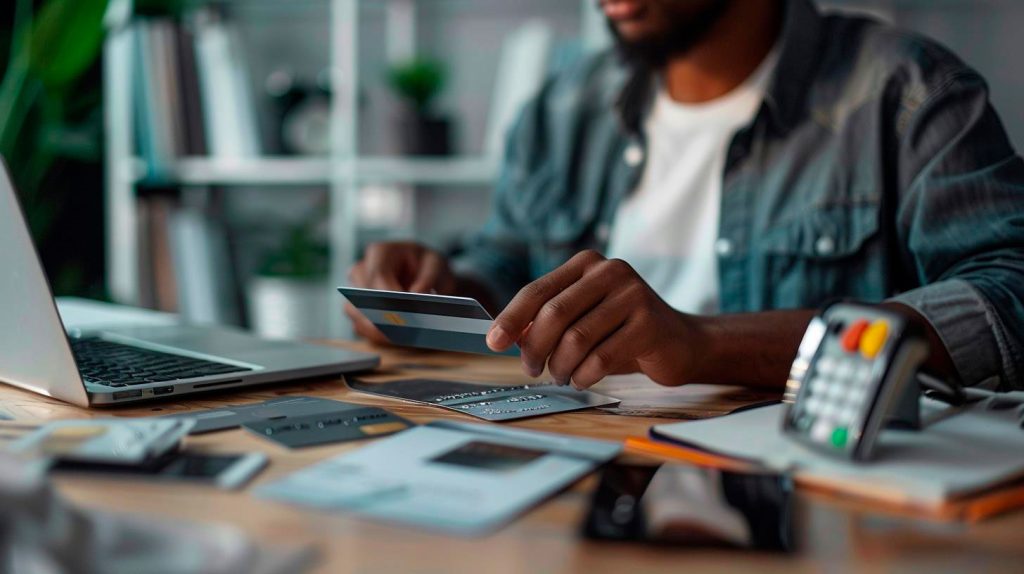
Building a Stronger Defense Against Identity Theft Through Monitoring and Prevention Strategies
Here at [Company Name], we understand the importance of taking proactive measures to prevent identity theft and safeguard your personal information. That’s why we offer a range of services designed to help our clients build a stronger defense against identity theft through monitoring and prevention strategies.
Identity Monitoring Services
One of the key ways to protect yourself against identity theft is through ongoing monitoring of your credit and personal information. Our identity monitoring services are designed to keep a close eye on your credit report, bank accounts, and other sensitive information for any signs of suspicious activity.
- Monitor your credit report for any unauthorized inquiries or accounts opened in your name
- Alert you to any changes in your credit score or unusual activity on your accounts
- Provide you with regular updates on the status of your personal information
By keeping a vigilant watch on your credit and personal information, you can catch any potential identity theft early and take steps to mitigate the damage before it escalates.
Identity Theft Prevention Strategies
Prevention is always better than cure when it comes to identity theft. That’s why we also offer a range of prevention strategies to help our clients reduce their risk of falling victim to identity theft in the first place.
- Secure your online accounts with strong, unique passwords and two-factor authentication
- Avoid sharing personal information on social media or with unknown parties
- Be cautious when clicking on links or downloading attachments from unknown sources
By following these simple yet effective prevention strategies, you can significantly reduce your risk of becoming a victim of identity theft.
Benefits of Our Identity Theft Services
By enrolling in our identity theft services, you can enjoy a range of benefits that will help you build a stronger defense against identity theft:
Peace of Mind
Knowing that your personal information is being monitored round the clock can provide you with peace of mind and assurance that you are taking proactive steps to protect yourself against identity theft.
Early Detection
Our monitoring services can alert you to any suspicious activity promptly, allowing you to take immediate action to prevent further damage to your finances and reputation.
Expert Guidance
Our team of experienced professionals is here to provide you with expert guidance and support in the event that you do become a victim of identity theft. We will help you navigate the process of reporting and recovering from identity theft effectively.
Recognizing Warning Signs of Identity Theft and Reacting Quickly
In this blog post, we will discuss some common warning signs of identity theft and provide tips on how to react quickly if you suspect that your identity has been compromised.
Warning Signs of Identity Theft
Identity thieves are constantly evolving their tactics, making it essential to stay informed about the warning signs of identity theft. Some common red flags to watch out for include:
- Unauthorized charges on your credit card or bank statements
- Missing mail or bills
- Unexpected denials of credit
- Receiving calls from debt collectors for debts you don’t owe
- Unexplained withdrawals from your bank account
If you notice any of these warning signs, it’s crucial to take immediate action to protect your identity and mitigate any potential damage.
Reacting Quickly to Identity Theft
Reacting quickly to identity theft can help minimize the impact on your finances and credit score. Here are some steps you should take if you suspect that your identity has been stolen:
1. Place a Fraud Alert on Your Credit Reports
By placing a fraud alert on your credit reports, you can alert creditors to the fact that you may be a victim of identity theft. This can help prevent further unauthorized activity on your accounts.
2. Contact Creditors and Close Compromised Accounts
Contact your creditors immediately to report any suspicious activity on your accounts. Close any accounts that have been compromised and open new ones with different account numbers.
3. File a Report with the Federal Trade Commission
File a report with the Federal Trade Commission (FTC) to document the identity theft and receive a recovery plan. The FTC provides valuable resources for victims of identity theft.
4. Monitor Your Credit Reports Regularly
Regularly monitoring your credit reports can help you detect any new unauthorized activity and take immediate action to address it. You can access free credit reports from all three major credit bureaus once a year.
5. Consider Freezing Your Credit
If you’ve been a victim of identity theft, you may want to consider freezing your credit with the three major credit bureaus. This can prevent new accounts from being opened in your name without your permission.
Benefits of Reacting Quickly to Identity Theft
Reacting quickly to identity theft not only helps protect your finances and credit score but also provides peace of mind knowing that you are taking proactive steps to address the situation. By following the steps outlined above, you can minimize the impact of identity theft and prevent further damage to your financial well-being.
Don’t wait until it’s too late – be vigilant, recognize the warning signs of identity theft, and react quickly to protect your personal information. Remember that prevention is key when it comes to identity theft, so stay informed and take proactive steps to safeguard your identity.
Tips for Protecting Your Personal Information Online and Offline
Online Protection
When it comes to protecting your personal information online, there are several key steps you can take. First and foremost, make sure to use strong, unique passwords for all of your accounts. Avoid using easily guessable passwords like “123456” or “password,” and consider using a password manager to securely store and generate complex passwords.
Another important step is to enable two-factor authentication whenever possible. This adds an extra layer of security to your accounts by requiring a second form of verification, such as a code sent to your phone or email, in addition to your password.
Be cautious about sharing personal information on social media and other online platforms. Avoid posting sensitive information like your full name, address, phone number, or financial details. Cybercriminals can use this information to steal your identity or commit fraud.
Finally, be wary of phishing scams and malicious websites. Phishing emails and websites often mimic legitimate sources to trick you into revealing personal information. Be cautious of unexpected emails asking for sensitive information or urgent action, and always double-check the URL of websites before entering any personal data.
Offline Protection
While much emphasis is placed on online security, it’s also important to protect your personal information offline. Shred any physical documents containing sensitive information before throwing them away, such as bank statements, credit card offers, and receipts.
When using ATMs or payment terminals, cover the keypad with your hand to prevent someone from stealing your PIN. Be cautious of sharing personal information over the phone or in person, especially if you didn’t initiate the communication.
Consider using a secure lockbox or safe to store important documents like passports, social security cards, and birth certificates. This can help protect these valuable items from theft or damage.
Statistical Information
- According to the Federal Trade Commission (FTC), identity theft was the top consumer complaint in 2020, with over 1.3 million reports.
- A study by Javelin Strategy & Research found that there were 14.4 million victims of identity fraud in the United States in 2019.
- The global cybercrime industry is estimated to be worth over $1.5 trillion annually, making it more profitable than the global illegal drug trade.
By following these tips and staying vigilant about protecting your personal information both online and offline, you can reduce the risk of falling victim to identity theft, fraud, and other cybercrimes. Remember that your personal information is valuable and worth protecting, so take the necessary steps to keep it secure.
Want more personalized advice on protecting your personal information? Contact our team of experienced lawyers today for expert guidance on cybersecurity and data protection.
Understanding the Risks of Identity Theft for Young Adults
In this blog post, we will explore the risks of identity theft for young adults and provide tips on how to protect yourself from becoming a victim.
Why are Young Adults at Risk?
Young adults are often targeted by identity thieves because they are more likely to engage in risky online behaviors. According to a recent study, millennials are the most common victims of identity theft, with 1 in 4 falling prey to this crime. This age group is more active on social media platforms and tends to overshare personal information, making it easier for cybercriminals to gather the data they need to commit fraud.
Another reason why young adults are at risk of identity theft is their lack of awareness about the importance of securing their personal information. Many young people are unaware of the risks associated with sharing sensitive data online or using unsecure Wi-Fi networks, making them easy targets for cybercriminals.
The Consequences of Identity Theft
Identity theft can have devastating consequences for young adults, both financially and emotionally. Victims of identity theft may find themselves facing exorbitant bills for fraudulent purchases, damage to their credit score, and even legal troubles if their identity is used to commit crimes. In addition, the emotional toll of having your identity stolen can be significant, leading to feelings of violation, helplessness, and mistrust.
According to a recent survey, young adults who have been victims of identity theft reported higher levels of stress, anxiety, and depression compared to their peers who have not experienced this crime. The impact of identity theft on mental health should not be underestimated, as it can have long-lasting effects on a person’s well-being.
Protecting Yourself from Identity Theft
Fortunately, there are steps that young adults can take to protect themselves from identity theft. One of the most important things you can do is to be vigilant about where and how you share your personal information online. Avoid oversharing on social media platforms and be cautious about the links you click on or the Wi-Fi networks you connect to.
It is also essential to regularly monitor your financial accounts and credit reports for any suspicious activity. By staying informed about your financial status, you can quickly detect any signs of identity theft and take action to mitigate the damage. Consider using credit monitoring services to receive real-time alerts about any unusual activity on your accounts.
Identity theft is a serious threat to young adults, but by staying informed and taking proactive steps to protect your personal information, you can reduce your risk of becoming a victim. Remember to practice good online hygiene, monitor your financial accounts regularly, and be cautious about sharing sensitive information with others. By taking these precautions, you can safeguard your identity and avoid the devastating consequences of identity theft.













Yo, check ya bank statements often. If you spot any fishy charges, report ’em right away. Don’t wait ’til it’s too late!
Hey everyone, be careful when sharin’ personal info online. You never know who’s watchin’ and waitin’ to snatch that info for identity theft.
Q: What should young adults do if they suspect they’ve been a victim of identity theft?
Yo, watch out for them fake calls or texts askin’ for personal info. That’s a common tactic them scammers use to steal identities. Stay vigilant, peeps!
Q: Is it safe to use public Wi-Fi for banking or online shopping as a young adult?
Hey guys, remember to check your credit report regularly. That’s a good way to catch any suspicious activity early and nip identity theft in the bud.
A: Identity thieves can get personal info through phishing emails, fake websites, or even by stealing physical documents like mail or IDs. It’s important to be vigilant and protect your personal info at all times.
Yo, fam, protect ya passwords. Don’t be usin’ the same one for every account. Mix it up and make ’em strong!
A: If you suspect you’ve been a victim of identity theft, the first step is to freeze your credit and report the incident to the authorities. You should also monitor your accounts closely and consider enrolling in an identity theft protection service for added security.
Ay yo, young bloods, don’t be givin’ out ya social security number unless it’s absolutely necessary. That’s prime info for them identity thieves to steal.
A: It’s generally not safe to use public Wi-Fi for sensitive transactions. Hackers can easily intercept your data on public networks. It’s best to use a secure, private network for these activities to avoid potential identity theft.
Yo, peeps! Make sure you shred any important documents before you throw ’em out. Identity thieves be lurkin’ in them trash cans, tryna steal ya info!
Hey guys, keep ya devices updated with the latest security patches. That’ll help keep them hackers at bay and protect ya from identity theft.
Q: How do identity thieves usually get access to a young adult’s personal information?
Hey guys, consider getting some identity theft protection like Lifelock or Identity Guard. They can help monitor ya credit and alert ya if there’s any suspicious activity.
Guys, don’t be clickin’ on them shady links in emails or texts. That’s how them hackers get ya personal deets. Stay safe out there!